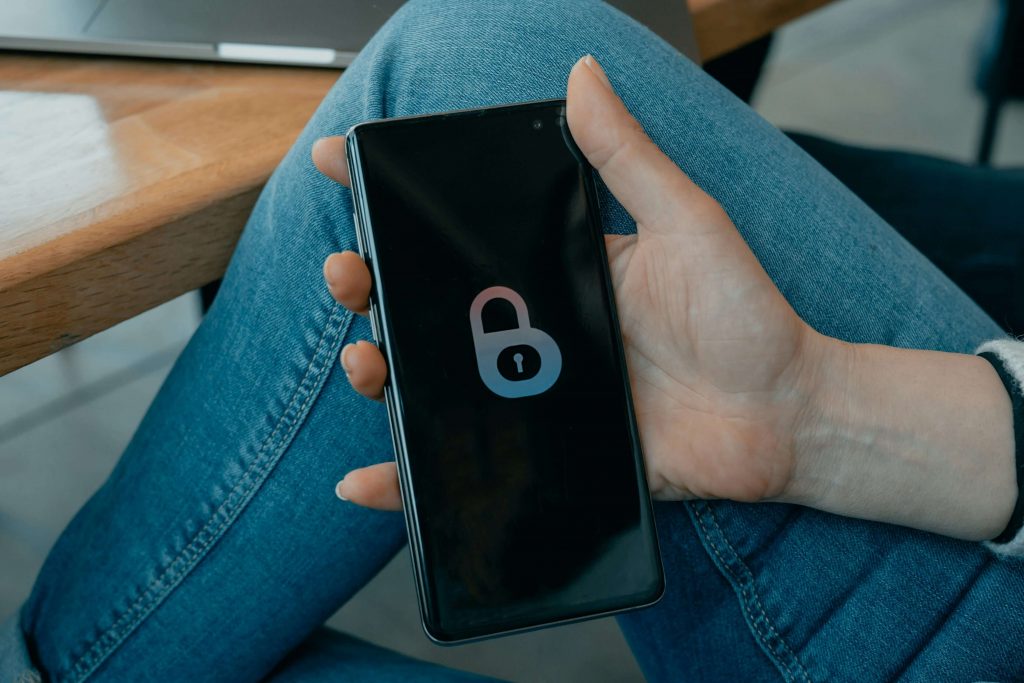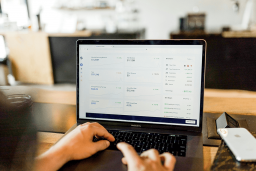In 2021, the total downloads of the world’s top 30 crypto apps exceeded 500 million, which was 2.8 times that of 2020. In Q1 2022, downloads of crypto apps also surpassed 100 million. These numbers show the high potential of blockchain mobile apps, especially during the Bull Run period.
When set up correctly, blockchain offers a decentralized solution that minimizes intermediaries, enhances transparency, secures data, and prevents unauthorized access. This technology can serve as an alternative to traditional backbones when designing application architectures for Android and iOS. In this article, we will explore how to develop a blockchain application, along with blockchain app examples and costs.
Key points
What are blockchain apps?
Blockchain apps, also known as decentralized applications (dApps), run on a blockchain network rather than on a centralized server. They leverage blockchain technology’s properties to provide features that are difficult to achieve with traditional centralized applications.
Mobile blockchain application functionality
Mobile blockchain applications offer a variety of functionality that makes them attractive to users and businesses:
- Data storage. Blockchain technology provides decentralized data storage, which increases security and reliability.
- Smart contracts. The ability to use smart contracts to automate and enforce transaction terms makes everything more transparent.
- Tokens. They represent various assets on the blockchain.
- Transparency. All transactions and operations are open for verification.
- Accessibility. Mobile blockchain applications are available anytime and anywhere, providing ease of use for users.
- Increased efficiency. Blockchain technology reduces transaction and transaction times, improving operational efficiency.
The scope and specifics of the work, the required functionality, and the choice of technologies determine the price of blockchain app development. After the terms of reference are drawn up, an approximate cost can be obtained.
Benefits of a mobile blockchain application
Creating a mobile blockchain app offers some advantages that make it attractive to users and businesses:
- Decentralization and security. Blockchain provides decentralized data storage and a high level of security.
- Transparency and reliability. All cryptocurrency transactions and operations are open for verification, ensuring transparency and reliability.
- Efficiency and speed. Blockchain reduces the time it takes to complete transactions and operations, which improves efficiency.
- Ease of use. Mobile blockchain applications are available anytime and anywhere, ensuring ease of use for users.
- New business opportunities. Blockchain technology offers improved transparency and streamlined processes.
Blockchain can be used to create private networks for internal corporate use and public networks for widespread use. Blockchain technology can be used in real estate, FinTech, energy and sustainability, government and the public sector, e-commerce, supply chains, medicine, and education, as well as in organizing electronic document management.

5 examples of blockchain apps
Here are 5 examples of blockchain apps:
- Crypto wallets. Crypto wallets are applications that allow users to store, manage, and transact with their cryptocurrencies securely. They interact with blockchain networks to facilitate transactions and provide a user-friendly interface for managing digital assets. Examples include MetaMask, Trust Wallet, and Ledger Nano S.
- Decentralized Finance (DeFi). Platforms like Uniswap, Aave, and Compound allow users to lend, borrow, and trade cryptocurrencies without intermediaries.
- Gaming. Blockchain-based games like Axie Infinity and The SandBox allow players to own, trade, and monetize in-game assets using blockchain technology.
- Supply chain management. Companies like IBM and Walmart use blockchain to track and verify the provenance and movement of goods in the supply chain, enhancing transparency and reducing fraud.
- Digital identity. Blockchain apps like uPort and Civic provide decentralized identity solutions, allowing individuals to control their own identity and personal data.
Blockchain apps represent a significant shift in how applications are designed and deployed, offering numerous benefits while also posing unique challenges.
How much does it cost to build a blockchain app?
Let’s take a look at the important points that affect the cost of developing a blockchain application:
- Selecting a blockchain platform. The development cost will depend on the chosen blockchain (e.g. Ethereum, Hyperledger, Corda, etc).
- Complexity of functionality. The more complex functionality required in the application (smart contracts, voting mechanisms, etc.), the higher the cost.
- Design and user experience (UI). Complex design and user interface can increase the cost of development.
- Connectivity with other systems. Integration with other systems can also increase the cost of development.
Here’s a rough estimate of costs based on blockchain app complexity:
- Simple blockchain app: $10,000 – $30,000
- Medium complexity app: $30,000 – $100,000
- High complexity app: $100,000 – $500,000+
Working with experienced blockchain developers like SoloWay Tech and conducting thorough planning and budgeting can help ensure a successful and cost-effective blockchain app development process.
Blockchain application development process: quick overview
Developing a mobile blockchain app requires the following steps for the successful realization of the project:
- Project planning. You must define the goals and objectives of the application based on blockchain technology, analyze user requirements, and manage business processes.
- Selecting a suitable blockchain platform. You identify a suitable blockchain (e.g. Ethereum, Hyperledger, Corda). To make a proper choice, project requirements for your future mobile blockchain app are considered.
- Writing smart contracts. They define the blockchain application logic. Then, you must test smart contracts for security and correctness.
- User interface (UI) design. You develop a user interface that interacts with the blockchain. The usability of the blockchain app must be at the highest level. We at SoloWay Tech, for example, conduct usability testing of every IT product we create.
- Testing and optimization. You must test the entire blockchain application at various development stages. Optimizing app performance and security is also important.
If you need a reliable blockchain app development partner, contact our SoloWay Tech team. We have 15+ experts well-versed in diverse blockchain apps and have many successful blockchain projects behind our shoulders.
Blockchain application development process: interaction models
When building a startup blockchain app, there are 3 main interaction and payment methods:
- Fixed price. The composition, cost, and timing of work are estimated and fixed at the start of the collaboration. This is possible with a valid requirements specification or terms of reference. The model is most effective in projects where the task is assumed not to change during the blockchain app development.
- Time & Materials. This flexible collaboration model is relevant for projects where a specification or ToR cannot be developed initially. This can happen, for example, due to changing requirements or a lack of time for preparation. In such a case, the blockchain app development cost is calculated when the project is ready.
- Hourly payment. In this approach, you pay for the hours of work developers do during a certain period. This approach is suitable for small projects or cases when you need flexibility in defining the scope of work and deadlines.
Payment is made at the end of each paid period, which allows you to control the budget and deadlines.
How can SoloWay Tech help you develop a blockchain app?
Our SoloWay Tech team is more than just a blockchain-development partner. We’re a reliable cornerstone in the realm of blockchain solutions. Here is what we offer:
- Analysis. We thoroughly analyze and determine the requirements before starting work. We develop the application according to your organization’s goals.
- MVP. We develop MVP as soon as possible so you can start testing the business model as soon as possible.
- Quality control. QA experts eliminate bugs in production. The code is standardized and easy to scale and maintain.
- Cross-platform app. Your blockchain app will work on all popular mobile platforms.
- Scalability. We consider scalability at the early stage of system creation. Later, you can develop the product without major redesigns.
- High load resistance. Your blockchain app will withstand thousands of simultaneous user requests.
Our SoloWay Tech team creates and finalizes blockchain applications in the shortest possible time. Whether you’re a startup looking to tokenize assets or an enterprise seeking to streamline operations through blockchain implementation, we offer comprehensive blockchain-based solutions designed to propel your project forward.





